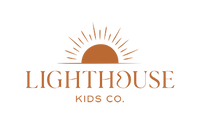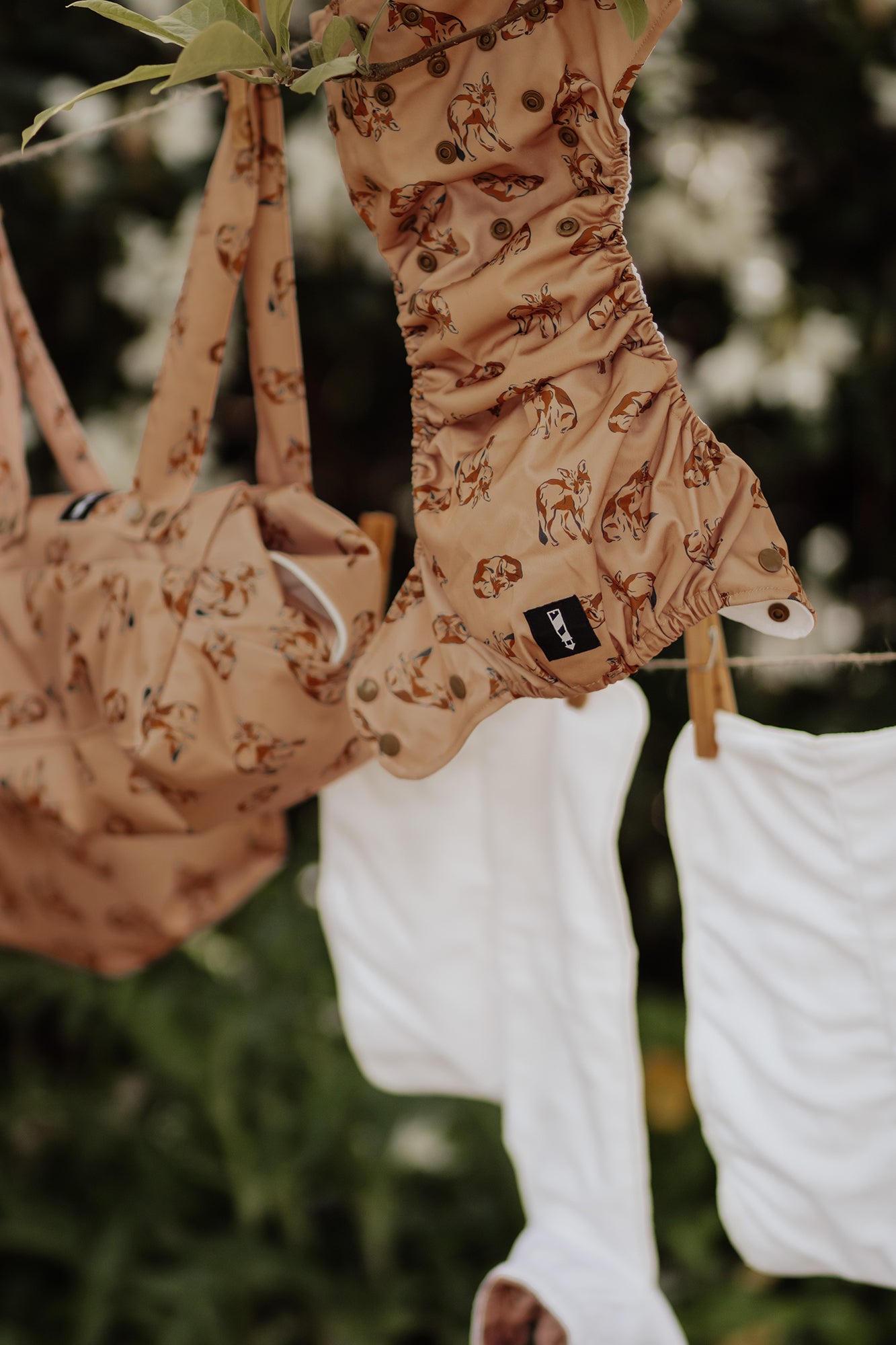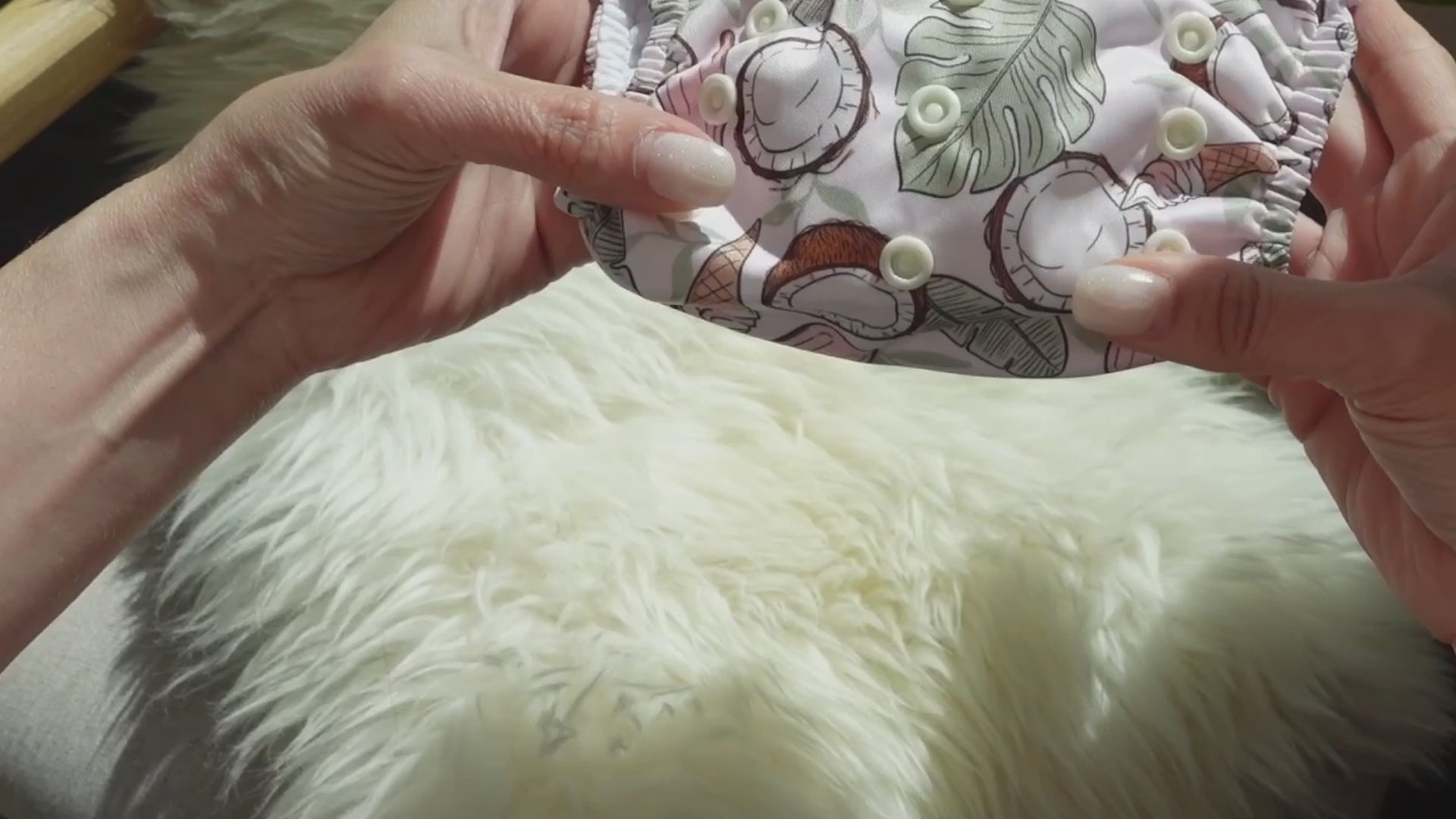The Ultimate Guide to Cloth Diaper Detergents
At Lighthouse Kids Co., we know that choosing the right detergent for cloth diapers is crucial for maintaining the cleanliness, absorbency, and longevity of your investment.
Key Components of Effective Cloth Diaper Detergents
Enzymes and Surfactants
Enzymes and surfactants are essential components in cloth diaper detergents. Enzymes break down proteins, fats, and starches in stains, while surfactants help lift and wash away dirt and residues. A good detergent for cloth diapers will contain these ingredients to ensure thorough cleaning.
Additive-Free Formulations
When selecting a detergent, it’s important to avoid additives like fabric softeners, bleach, and optical brighteners. These can leave residues on the diapers, reducing their absorbency and potentially irritating the baby’s skin. Fabric softeners, in particular, can coat the fibers, leading to repelling issues.
Powder vs. Liquid Detergents
An ongoing debate is whether powder or liquid detergents are better for cloth diapers. Powder detergents are better for the environment and your wallet. They have more cleaning power and less water than liquid detergents. They are also less likely to accidentally coat your fabrics as you're pouring it into the wash.
However, some households prefer liquid detergents because they can be more convenient, especially in areas with hard water.
Best Detergents for Cloth Diapers
1. Tide
Many people highly recommend Tide for cloth diapers because it contains a balanced formula of enzymes, surfactants, and water softeners. It is effective for most water types and is able to consistently clean cloth diapers. While it may not be the most natural option, its cleaning power is unmatched, making it a top choice for many parents.
2. All Free And Clear
All Free And Clear is another excellent option, known for its effective cleaning and neutral scents. It has slightly fewer water softeners than Tide, but still performs well in most water conditions. It offers a good balance between cost and performance, making it a solid second choice.
3. Persil
Persil is a newer detergent on the market that provides strong cleaning power. Some cloth diapering moms have recommended Persil as a strong detergent that cleans effectively.
4. Arm & Hammer Free and Clear
This detergent is great for families dealing with sensitive skin Issues or eczema. It’s free of dyes and perfumes, ensuring gentle yet thorough cleaning. Arm & Hammer Free and Clear is a good choice for people who want a natural detergent that still cleans well.
5. Best Natural Detergent
Rockin' Green Dirty Diaper Detergent. This is my personal favorite natural detergent that actually works for eczema-prone skin.
If you have trouble with Rockin' Green, use Tide once a month to disinfect and Rockin' Green for regular laundry. You can use Tide to disinfect once a month if Rockin' Green is causing problems.
5. Other Mainstream Detergents
Most mainstream detergents can effectively clean cloth diapers as long as they contain the necessary enzymes and surfactants and are free from harmful additives. Brands like Foca and Ecos Free and Clear, and Purex Free and Clear can also be suitable choices.
Detergents to Avoid
Homemade Detergents
We do not recommend homemade detergents for cloth diapers. They might not have enough cleaning products, which can leave residue behind, which can build up over time.
This buildup can cause less absorption and potential skin irritation. Ingredients like borax, commonly found in homemade formulas, can be particularly harsh on diaper materials.
Note: Large concentrations of Borax can have devastating effects on fabrics like Bamboo.
Baby detergents like Dreft are essentially regular detergents with a powdery scent marketed at a higher price to parents. They are full of fragrances and leave a residue on your inserts, which can eventually lead to build-up.
Detergents with Fabric Softeners
Fabric softeners can cause significant issues with cloth diapers by coating the insert fibers and preventing them from absorbing liquid. This can lead to leaks and skin irritation. Always opt for detergents that do not contain fabric softeners.
Scented Detergents
While some scented detergents are acceptable, it’s generally better to choose unscented options, especially for babies with sensitive skin. If using a scented detergent, ensure it does not contain other harmful additives.
Washing Tips for Cloth Diapers
Water Temperature
Using the right water temperature is crucial for effective cleaning. Warm/hot (60C/145F) water is generally recommended for washing cloth diapers, as it helps dissolve detergent and remove stains without damaging the fabric.
A final cold rinse can help prevent stains from setting and remove any remaining detergent residues.
Water Hardness
The hardness of your water can impact how well your detergent works. Hard water can lead to mineral build-up on diapers, reducing their absorbency. Using a water softener, such as Calgon, can help if you have hard water. However, be sure to choose a cloth diaper-safe softener to avoid damaging the diapers.
Drying Methods
Avoid using dryer sheets as they can leave residues on cloth diapers, affecting their performance. Instead, opt for wool dryer balls, which are eco-friendly and help reduce drying time and static cling. Wool dryer balls can last up to 1,000 loads, making them a sustainable and economical choice.
Conclusion
At Lighthouse Kids Co., we know that selecting the right detergent for cloth diapers is essential to maintaining their effectiveness and prolonging their lifespan. Tide, Gain, Foca, and Arm & Hammer Free and Clear are all excellent choices, each offering unique benefits. Avoid homemade detergents and those with fabric softeners or harmful additives to ensure your cloth diapers remain in top condition. By following these guidelines and tips, you can keep your cloth diapers clean, absorbent, and safe for your baby’s delicate skin.






































